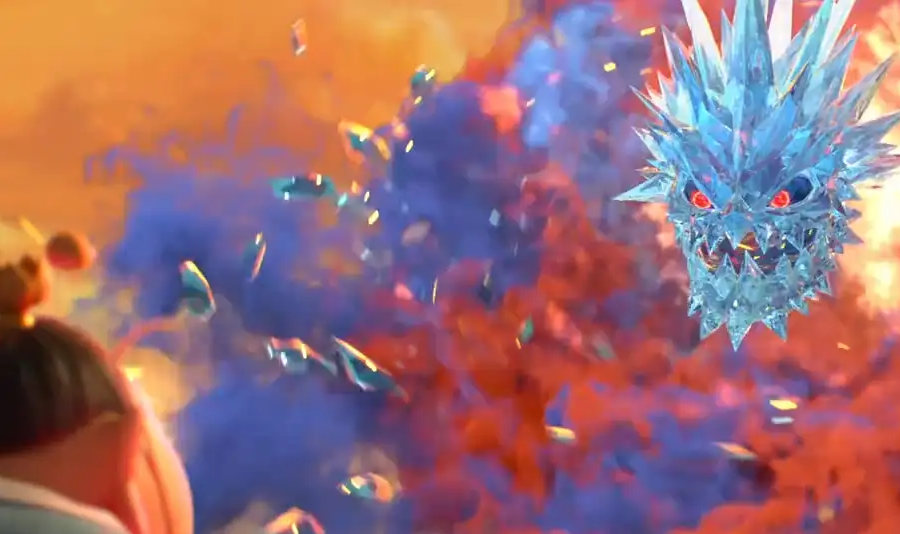
Donghua Rising: Why Chinese Dubbing Matters Now
Chinese dubbing is transforming the global donghua scene—and there’s real momentum behind this shift. Have you noticed how more international viewers now seek out Chinese-voiced versions, not just English subs? That’s no coincidence.
As a reference point, China’s animation sector earned about US $2.24 billion in 2024 alone. Domestic animation (including its voice acting sector) is expected to grow at a compound annual rate of 12.7% through 2030. This shows that domestic animation is finding its rhythm.
Particularly, a survey of 7,000 Chinese university students found that around 40% follow domestic animation, and 30% check for news weekly, which is substantial consistent engagement.
So, why is Chinese dubbing so important right now, and how is it influencing the global success of donghua?
What is Donghua?
Chinese dubbing is gaining attention, but let’s rewind for a second, “what exactly is donghua?” At a glance, the term may sound niche, but it simply means “animation” in Chinese.
While animation from China has been around for almost a century, the industry’s journey—from inception to the birth of its first animated film in 1926—has not always been smooth. In the early years, there were moments of hope when traditional techniques and aesthetics, such as ink painting, shadow puppetry, and stop-motion were combined with folk stories and opera. However, political movements (especially during the Cultural Revolution) caused interruptions to the creation of animated films. For many years, China’s animation industry trailed behind foreign imports and international production houses.

Looking back over the past two decades, we find the emergence of a new age of creativity. China's animation industry has been rebuilt and remade, and out of that rebuilding has emerged a new generation of donghua that is conceptually and stylistically innovative, but culturally rooted. Films such as Big Fish & Begonia, Nezha, and Heaven Official's Blessing are beginning to shift the expectations in audience members of what a Chinese animated film can look and feel like.
While anime is a more definitive backbone of the visual style of this new era, donghua has charted its own way forward. Its narratives prefer to venture into Chinese mythology, ancient philosophies, or science fiction trends with a local twist.
Voice acting is paramount in such instances. Chinese dubbing of high quality not only provides the dialogue but also works to shape the emotional impact, imparting each story its indigenous cultural rhythm.
Donghua Through the Lens of Anime and Manga Community
In Western markets, many casual viewers lump donghua in with anime—especially when the animation style looks similar. For those used to Japanese imports, anything with sleek designs and dramatic storytelling tends to get labeled “anime” by default.
This crossover is not always intentional. It can happen due to publishers and retailers making the conscious choice to reinforce it. For example, though obviously not Japanese, English releases of popular Chinese novels or animations will often find themselves on shelves labeled manga or light novels. Korean manhwa gets similar treatment.
While this increase in visibility can be beneficial, it may also blur cultural boundaries. People are apt to overlook what defines donghua—whether it’s narrative structure, character archetypes, or philosophical themes.
This is where voice acting in Chinese is important. A solid dub can provide a unique sense of rhythm, honorifics, and colloquialisms that mark the stories on which the characters are based. Furthermore, it allows the audience to appreciate that donghua isn't just trying to be an anime, but exists in context to anime as well as its own voice.
Why Chinese Dubbing Matters in Donghua's Rise
1. Donghua: From Overlooked to Trending
For many years, Chinese animation was considered to be in the shadow of Japanese anime and Western cartoons. However, this is no longer the case. Today, donghua is gaining significant traction, particularly with millennial and Gen Z audiences, both in China and beyond. In fact, streaming sites such as YouTube even use the term donghua broadly to refer to animation originating in China.
This growing attention is not merely a passing craze—it reflects a meaningful shift in television viewing habits. Accordingly, as more eyes turn toward Chinese animation, the demand for top-tier Chinese voice talent is rising as well.
Read more: Voice-over Localization vs. Dubbing: What's the Difference?
2. Stunning Visuals Alone Can’t Tell the Whole Story
No one can argue that donghua today looks terrific. Advances in technology have given artists the ability to display beautiful graphics. Dragons exhale pixel-perfect flames. Legendary beast slices through whirlpools of ink in resplendent 4K. The graphics are so crisp that some critics argue they rival or even surpass what comes out of studios such as Studio Ghibli.
No matter how lovely an animation might be to behold, however, animation is about storytelling. At this point, Chinese dubbing proves to be absolutely essential.
3. A New Generation of Fans, A New Standard for Dubbing
So, who exactly is watching donghua? Insight comes from a recent China Youth Daily survey of more than 7,200 university students. According to the data, 40.64% of students said they regularly follow popular domestic animations, and 30.35% check for new releases every week. That’s a sizable and highly engaged demographic.
With this expanding fanbase comes higher expectations. These viewers aren’t satisfied with just “decent” audio; they also want performances that elevate the material. As a result, Chinese voice acting is now under the spotlight more than ever before.
4. Tradition Meets Modernity
What makes donghua so appealing and interesting while retaining cultural substance is often in the balance between traditional Chinese elements and modern storytelling. That goes to show the cultural tenacity that makes these shows so specific and indicative of meaning. In fact, 81.1% of respondents to a survey said they were specifically interested in how donghua saturated its plots and visuals with traditional culture.
However, it is not easy to explore and animate poetry, mythology, and historical references. Compelling storytelling doesn’t rely solely on visuals—it also demands skilled and expressive voice performances.
5. Dubbing as a Medium for Cross-Cultural Understanding
With the proliferation of donghua even outside China, Chinese dubbing also faces a new kind of challenge: escaping cultures. Subtitles may provide convenience but lack the ability to carry over phrases, jokes, and cultural nuance effectively. Good dubbing can fill that gap and help non-Chinese speaking audiences get as close to the real thing as possible, without forgoing their authenticity.
How Chinese Dubbing Is Shaping the Global Success of Donghua
1. Emotional Resonance Through Mandarin Voice Acting
To begin with, Mandarin voice acting is a highly detailed and expressive craft. A skilled voice actor can communicate subtle emotional depth, cultural nuance, and character-related nuance, especially to native Mandarin speakers across the globe, whether it’s a soldier’s unspoken guilt, a nurturing parent’s emotional warmth, or an explosive anger. All emotional moments are honed through careful voice direction.
The increasing number of donghua series finds a space, often within the Mandarin dub structure, to provide self-awareness to these considerations related to Chinese identity. This can lead to massive emotional investment by Mandarin-speaking audiences in China, Singapore, Malaysia, and to a lesser extent, from other regions. It also allows non-Mandarin speakers to have a more authentic experience while watching, even if they rely on subtitles.
2. Bridging Cultures with Subtitles and Soul Land’s Success
It’s important to know that globally accessible subtitles wouldn’t exist if basic accessible subtitles didn’t come first. Today, most donghua include subtitles in multiple languages, allowing international audiences to enjoy them—while still preserving the original Mandarin essence of the story. A good example of this would be the extremely successful donghua Soul Land (斗罗大陆).
Soul Land is set in a fictional, magical universe where audiences will be surprised to witness their engagement and attention as they passively consume the story of people awakening their own spirit powers in various magical manifestations. The main character, Tang San, is a gifted martial artist who receives the good fortune of reincarnation into a world of "Spirit Masters."
Tang San must find a new means of adapting to survive and prosper to unlock family secrets along with earning the loyalty of friends. As he learns to control and master his ever-expanding powers. Soul Land incorporates very generic fantasy, martial arts, and ancient mythical themes represented through modern animation techniques, leading to great successes at home and abroad.
Interestingly, while Soul Land has a solid Chinese dubbing base, it clearly has a localization strategy with subtitles in English, Indonesian, simplified and traditional Chinese, Japanese, Korean, and more. This allows international fans to follow the story easily while still experiencing the emotional depth carried through the original voice performances. It's a win-win.
Having a dual strategy of producing a high-quality dubbed version and supplying subtitles is now a template for many donghua productions looking to have global success.
3. Building Lasting Impact Through Consistent Voice Identity
Finally, Mandarin voice performances help solidify character identities throughout various franchises. Just like iconic English or Japanese voices, consistent Mandarin voice actors help shape recognizable personas across sequels and spin-offs. Audiences often recall not just the character itself, but also the distinct voice that brought them to life.
Wrapping Up
As donghua continues to grow and expand outward, the Chinese dubbing element is becoming increasingly important, providing the emotional complexity, authenticity, and a bridging role between traditional and contemporary storytelling.
If you are currently in the market for a professional dubbing agency to maximize your next animation, game, or localization project, please consider talking to Digital-Trans Asia. We have recruited native Mandarin voice talents, along with dubbing professionals, who can achieve authentic and impactful results customized to your project’s cultural and emotional context. Visit https://digital-trans.asia/ to learn more about our services. Contact us today to get started!